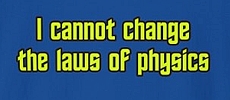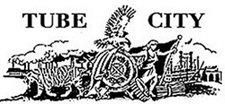
Felix Adler (August 13, 1851 – April 24, 1933) was a German American professor of political and social ethics, rationalist, popular lecturer, religious leader and social reformer who founded the Ethical Culture movement. (Click here for full Wikipedia article)
-----
An anxious unrest, a fierce craving desire for gain has taken possession of the commercial world, and in instances no longer rare the most precious and permanent goods of human life have been madly sacrificed in the interests of momentary enrichment.
By ceaseless efforts to live the good life we maintain our moral sanity. Not from without, but from within, flow the divine waters that renew the soul.
In a country of such recent civilization as ours, whose almost limitless treasures of material wealth invite the risks of capital and the industry of labor, it is but natural that material interests should absorb the attention of the people to a degree elsewhere unknown.
It has been said that the modern world is divided between the hot and hasty pursuit of affairs in the hours of labor, and the no less eager chase of pleasure in the hours of leisure. But even our pleasures are calculated and business like. We measure our enjoyments by the sum expended. Our salons are often little better than bazaars of fashion.
It may be impossible for a man by merely willing it to add wings to his body, but it is possible for any man, by merely willing it, to add wings to his soul. This perennial miracle of the moral nature is capable of happening at any time.
Let us found religion upon a basis of perfect intellectual honesty. Religion, if it is to mean anything at all, must stand for the highest truth. How then can the cause of truth be served by the sacrifice, more or less disguised, of one's intellectual convictions?
Love is the expansion of two natures in such fashion that each include the other, each is enriched by the other.
Love of country is like love of woman- he loves her best who seeks to bestow on her the highest good.
Man is like a tree, with the mighty trunk of intellect, the spreading branches of imagination, and the roots of the lower instincts that bind him to the earth. The moral life, however, is the fruit he bears; in it his true nature is revealed.
No religion can long continue to maintain its purity when the church becomes the subservient vassal of the state.
Simplicity should not be identified with bareness.
The condition of all progress is experience. We go wrong a thousand times before we find the right path.
The family is the school of duties- founded on love.
The freedom of thought is a sacred right of every individual man, and diversity will continue to increase with the progress, refinement, and differentiation of the human intellect.
The hero is one who kindles a great light in the world, who sets up blazing torches in the dark streets of life for men to see by.
The moral improvement of the nations and their individual components has not kept pace with the march of intellect and the advance of industry.
The office of the public teacher is an unenviable and thankless one.
The past speaks to us in a thousand voices, warning and comforting, animating and stirring to action.
The right for the right's sake is the motto which everyone should take for his own life.
The Supreme Ethical Rule: Act So As To Elicit the Best In Others and Thereby In Thy Self.
The symbols of religion are ciphers of which the key is to be found in moral experience. It is in vain we pore over the ciphers unless we possess the key.
The vice that underlies all vices is that we are held cheap by others, and far worse, that in our innermost soul we think cheaply of ourselves.
The world is dark around us and the prospect seems deepening in gloom. and yet there is light ahead
Theories of what is true have their day. They come and go, leave their deposit in the common stock of knowledge, and are supplanted by other more convincing theories.
There is a great and crying evil in modern society. It is want of purpose. It is that narrowness of vision which shuts out the wider vistas of the soul. It is the absence of those sublime emotions which, wherever they arise, do not fall to exalt and consecrate existence.
There may be, and there ought to be, progress in the moral sphere. The moral truths which we have inherited from the past need to be expanded and restated.
We have already transgressed the limit of safety, and the present disorders of our time are but precursors of other and imminent dangers.
We should teach our children nothing which they shall ever need to unlearn; we should strive to transmit to them the best possessions, the truest thought, the noblest sentiments of the age in which we live.
When the light of the sun shines through a prism it is broken into beautiful colours, and when the prism is shattered, still the light remains.
Where the roots of private virtue are diseased, the fruit of public probity cannot but be corrupt.
-----
(August 13 is also the birthday of Alfred Hitchcock.)
Categories: Felix Adler, Quotes of the day
Home KGB on Bluesky KGB on Substack
KGB Stuff Commentwear E-Mail KGB
Donate via PayPal

















